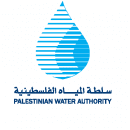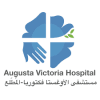Social Development Specialist
الوصف الوظيفي
لقد انتهت صلاحية هذه الوظيفة في 2022-10-10
تصفح أحدث الوظائف
عند التقدم لاية وظيفة عن طريق الانترنت، لا تقم بإعطاء معلومات بطاقة الأعتماد او أية معلومات بنكية / مالية لصاحب عمل. نصيحة من جوبس لحمايتك :
آخر الوظائف المعلنة بواسطة
سلطة المياه الفلسطينية
المسمى الوظيفي
تاريخ النشر
Senior Specialist in Water Resources Management
رام الله والبيرة
22, Jun
Senior Specialist in Integrated Waste Water Management
رام الله والبيرة
18, Dec, 2024
Network and Systems Administrator
رام الله والبيرة
20, Nov, 2024
Civil Engineer / Water and Wastewater Engineer
رام الله والبيرة
4, Jul, 2024
Environmental Specialist
رام الله والبيرة
4, Jul, 2024
Water Engineer
سلفيت وبديا
27, Jun, 2024
WasteWater Expert
الخليل
27, Jun, 2024
Non-Revenue Water Expert
رام الله والبيرة, الخليل
24, Mar, 2024









